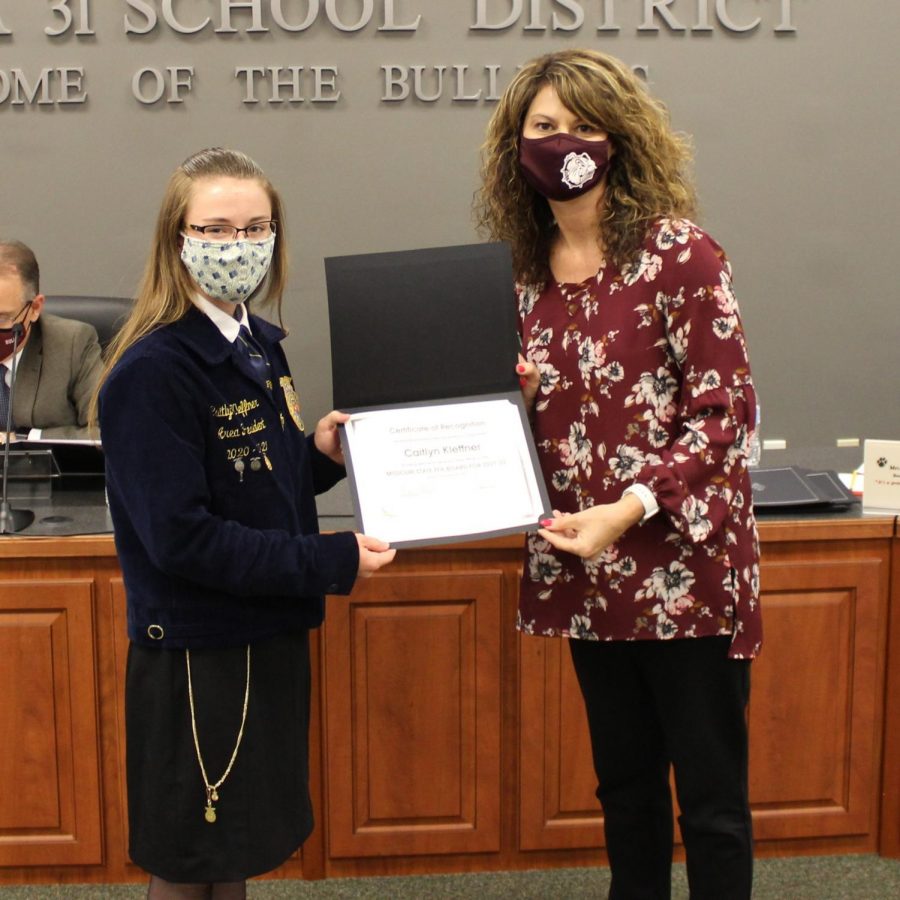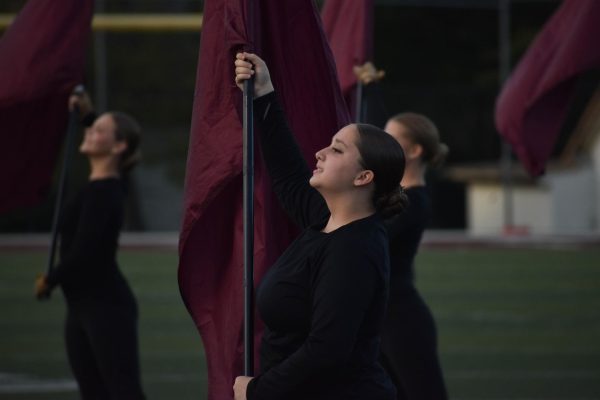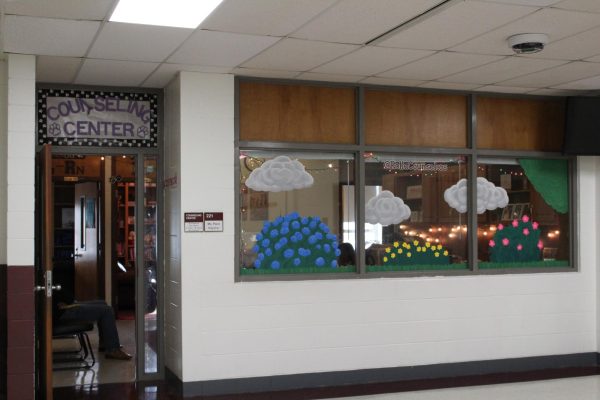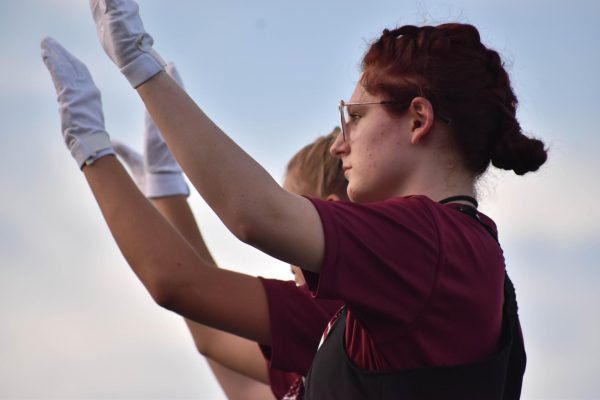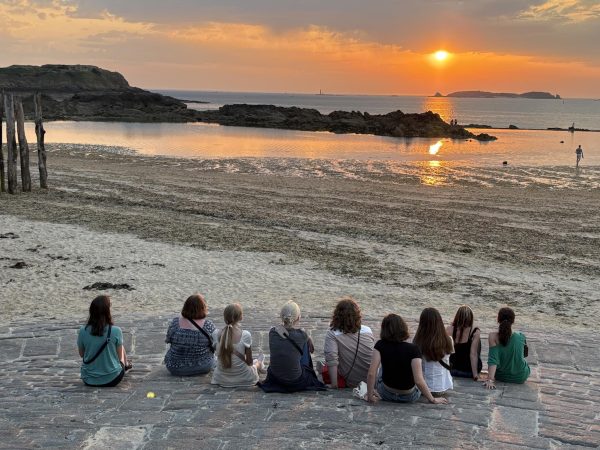The Hard Facts of Farm Life
Updated May 24, 2021. On May 6, 2021 Caitlyn Kleffner was chosen to serve as a state officer for Missouri State FFA, as one of only four students in Rolla’s history to serve as a state officer. Through the same hard work and dedication, Kleffner also received the Missouri State Fair Youth in Agriculture Scholarship and the Missouri Corn Growers Association scholarship.
Original story published March 29, 2021. The normal daily routine: wake up at 6:30, brush your teeth (hopefully), get dressed, eat breakfast, get to school. The sheer time in a day barely allows a student to take care of themselves– much less other living creatures. However, Caitlyn Kleffner takes care of a whole farm.
“So in the morning, generally I wake up and I run downstairs. If I’m at my mom’s, I’ll check on my sheep and make sure they’re all doing okay and none of them are eating anything they aren’t supposed to,” said Kleffner. “And then my cows, I’ll go to school in the mornings and then when I get home in the afternoons, I’ll go out and check them and feed them and make sure they’re all doing okay. And then the afternoon with my sheep. I’ll go down there and I’ll feed them and I’ll check them over again to make sure they have water and everything to get them through the next day.”
Living with a pack of breathing, hungry animals is not something that can be shirked off as a job “for tomorrow.” Unlike the constant nagging of menial tasks in the domestic home, responsibility isn’t something to be negotiated about on a farm.
“I have responsibilities I know I have to get done, because if I’m not going to do them, then they’re not going to get done,” says Kleffner. “And personally I know my sheep would not be very happy if they didn’t get fed.”
However, Kleffner’s responsibilities are not chores that have recently been thrown upon her.
“I’ve been working on a farm since the day I was born,” says Kleffner. “Farming has been such a big part of my entire life. I would honestly be lost without it. It’s made me who I am today, and there’s nothing that I would want to do without having farming as part of who I am.”
Farm lifestyle is not an easy thing to love, however. Farmers are at the constant will of their environment. The inability to save every animal, harvest every crop, and keep everything warm is not an easy reality to face.
“In the agriculture industry there are a lot of hardships, especially within livestock,” explained Kleffner. “A couple of weeks ago we had that really cold spell where temperatures got below negative. We had cows calving or new heifers calving within that first two weeks for the very first time. And so not only was it a shock on those heifers but those calves when they hit the ground, it was literally a slap on the face, and some of them could take it, some of them could not. In agriculture, you just have to understand that some things are going to make it, and some things are not.”
Working in close quarters with life–and death– is something that has to be done every day.
“Literally yesterday, I went out and had a baby lamb that was dead in the field…” said Lorena Cook, a student farmer at RHS. “We’ve had a lot this year, and I don’t really know why. But you have to deal with it. I can’t just wait for my dad to get home and just leave it there. You have to take care of it.”
The battering insensitivity of the natural world– where not everything makes it through the day– is not the regular notion for the run of the mill teen. The early exposure to the reality of life, however, allows for empathy and self-awareness.
“It teaches you emotional intelligence, like how to deal with those sorts of things,” said Cook. “You realize it’s a part of life and life goes on. It’s not disrespectful. You still…realize that it’s a life that’s now gone but you don’t let it control you.”
The farming community (of others experiencing the same reality) persists through generations.
“After my mom passed away, all of these people that I haven’t even met, they all came up to me,” explained Cook. “And they’re all telling me how much they loved her or how much she impacted their lives or livestock.”
Farming is not only a way to make a living, but also a way to see the world. At the end of the day, no matter what happens, the sheep need to be fed.
“At the end of the day, you have to take a moment and understand that yes, I lost these calves, it’s sad, but I can’t sit there and worry about it because I know I did everything that I could to save them and to help them be healthy,” said Kleffner. “It’s the same kind of perspective with people in my life that I’ve lost. Yes, it’s sad, and I’m going to be sad for a while, but in the end, the world will keep turning and my life will keep going on and I will remember them. And I’m going to miss them. But I have to keep my head down and keep going forward.”



